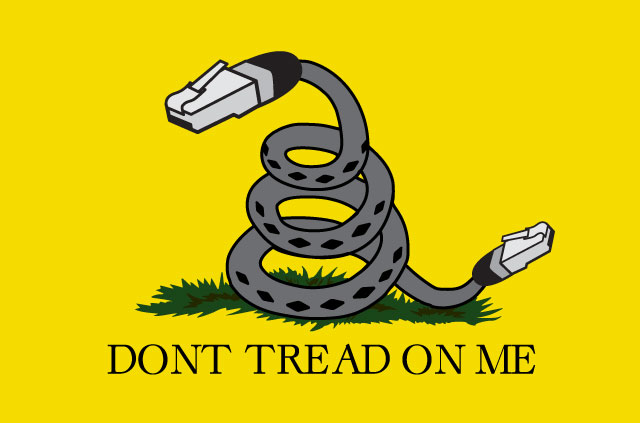You’ve probably already heard the news: on Dec 14th, the FCC went against the best interest of the general public and effectively dismantled net neutrality laws in the U.S.
Internet service providers (ISPs) will now have more freedom to tweak and alter their broadband service any way they see fit. For major telecom companies like AT&T and Comcast, this opens the possibility to create “fast lanes” for high-paying users, while also effectively slowing down (and even blocking) specific sites.
With more than 100 million Americans only having one internet service provider to choose from, giving ISPs carte blanche will likely reshape the way internet is used in the States, and not for the better.
Fortunately, there are ways you can help protect against the inevitable blowback, and while VPNs may not offer a catch-all when it comes to bypassing these new internet restrictions, it’s a first step to putting the freedom of the internet back into the hands of the user.
Here are three ways a VPN can help against the net neutrality repeal.
1. VPNs can help you avoid intentional network throttling
As mentioned earlier, repealing net neutrality allows ISPs to pick and choose which sites to speed up—and which to slow down. This isn’t simply speculation; Comcast and other services have already updated their Terms of Service to reflect these new changes.
It works like this: When a site like Netflix offers to pay more to allow their service to load faster, ISPs can now increase user bandwidth for that site while simultaneously decreasing the loading speeds of every competitor. It’s a pay-to-play scenario, with the only benefactors being the ISP.
However, when you use a VPN, you can reset your network’s browsing speeds to normal, meaning you’re able to avoid any potential ISP throttling. Now, this won’t help you load sites faster, but it will prevent your ISP from picking and choosing which sites they throttle for you.
2. VPNs can also let you avoid ISP censorship
In high-censorship countries like China and Turkey, VPNs are commonplace to help users unblock basic sites like Google and YouTube.
By switching your location to a virtual server outside of your ISP’s jurisdiction, you’re able to browse without limits. And while it’s true that ISPs could one day start blocking VPNs, the fact that more businesses and products have begun incorporating VPN use for security makes that a highly unlikely scenario.
3. A VPN can also help you browse more anonymously
While Congress is currently embroiled in how to go about reinstating old NSA surveillance laws, ISPs are currently logging, tracking, and recording every single thing you do online. A VPN offers an extra layer of anonymity by encrypting a user’s internet connection and masking all their online data.
While not directly connected to the net neutrality repeal, ISPs having more freedom are never in the best interests of user privacy. The internet was made to be free, despite numerous attempts to set it otherwise, and a VPN can help you browse the web the way you are meant to.
User anonymity should come first
Of course, a user’s anonymity is only as good as the VPN’s privacy policy allows; if you’re using a free VPN or one that keeps logs, then there’s no way you’re truly able to browse anonymously.
While VPNs may not be able to a complete refuge from the impending ISP fallout, they offer users a better, safer, and a more just way to browse the web.


Recent Comments